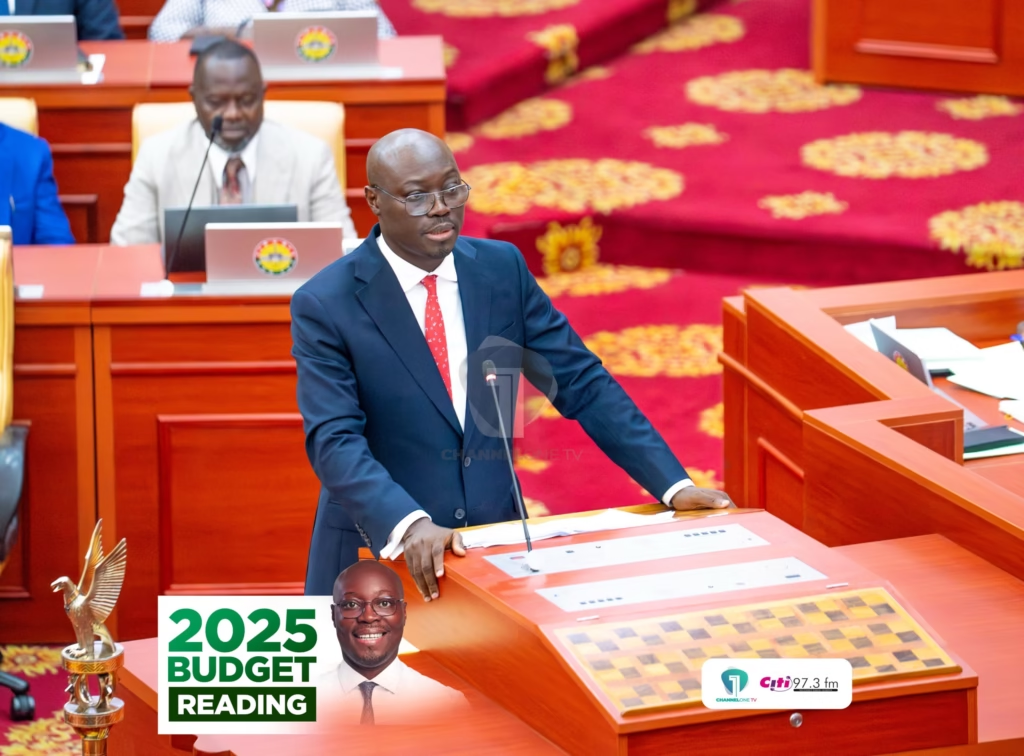Bank of Ghana Requests GHS53 Billion Bailout
In a startling revelation, Ghana’s Finance Minister, Dr. Cassiel Ato Forson, announced that the Bank of Ghana (BoG) is seeking a GHS53 billion bailout to address its negative equity challenges. This disclosure was made during the presentation of the 2025 Budget Statement and Economic Policy to Parliament on Tuesday, March 11. The bailout underscores the severe financial difficulties faced by the central bank and the urgent need for intervention to stabilize its operations.
For more details on Ghana’s economic policies, visit the Ministry of Finance’s official website.
Government Arrears Hit GHS67.5 Billion
Dr. Forson also revealed that the total central government arrears amounted to GHS67.5 billion as of December 2024, representing 5.2% of Ghana’s GDP. A significant portion of this debt, GHS21 billion, is attributed to the road sector alone. This massive financial obligation highlights the challenges faced by contractors and suppliers who have yet to receive payments for their services.
To understand more about Ghana’s GDP and economic indicators, explore the World Bank’s Ghana page.
Breakdown of Government Arrears
The GHS67.5 billion in arrears includes:
- Outstanding Interim Payments: GHS49.2 billion owed by Ministries, Departments, and Agencies (MDAs).
- Bank Transfers: GHS18.3 billion at the Controller and Accountant General’s Department.
This staggering amount excludes additional debts such as:
- $1.73 billion owed to Independent Power Producers (IPPs).
- GHS68 billion owed by the Electricity Company of Ghana (ECG) to contractors.
- GHS32 billion owed by COCOBOD to contractors.
- GHS5.75 billion owed by the Ghana Road Fund to various contractors.
For more insights into Ghana’s public financial management, visit the International Monetary Fund (IMF).
Urgent Need for Financial Reforms
The revelation of these financial challenges underscores the urgent need for comprehensive reforms to address Ghana’s fiscal issues. Dr. Forson emphasized the importance of prioritizing payments, improving revenue collection, and implementing stricter financial controls to prevent future arrears. These measures are crucial for restoring confidence among contractors, suppliers, and investors.
For updates on Ghana’s economic policies and reforms, follow the Ghana Revenue Authority (GRA).
Call to Action: Addressing Ghana’s Financial Challenges
The GHS53 billion bailout for the Bank of Ghana and the GHS67.5 billion in government arrears highlight the critical need for immediate action. Stakeholders, including the government, private sector, and international partners, must collaborate to implement sustainable solutions. By addressing these financial challenges, Ghana can pave the way for a more stable and prosperous economic future.
For more information on Ghana’s budget and fiscal policies, visit the Parliament of Ghana’s official site.
Conclusion
The financial challenges disclosed by Dr. Ato Forson are a wake-up call for Ghana’s government and its citizens. While the road ahead is daunting, decisive action and strategic reforms can help stabilize the economy and restore confidence. Stay informed and engaged as Ghana navigates these critical financial issues.



